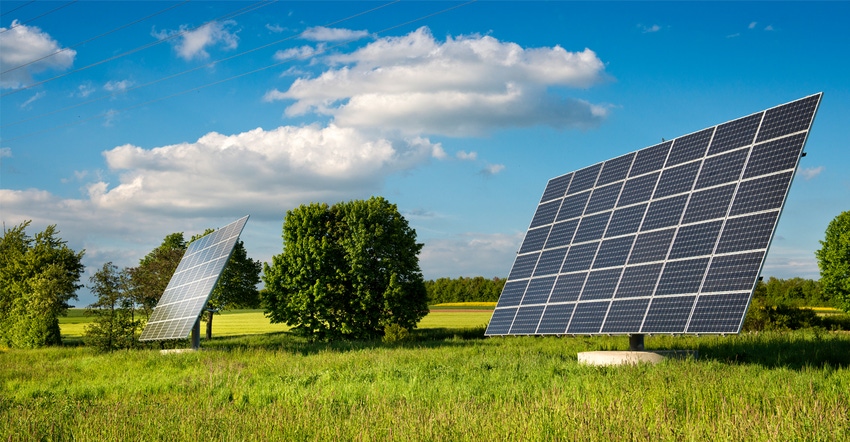July 12, 2022

Solar farms are growing rapidly in Wisconsin and across the U.S. According to the Solar Energy Industries Association, solar farms have averaged 68% annual growth during the past decade. The association projects Wisconsin will add 3,257 megawatts of electricity over the next five years.
As the solar industry continues to grow, farmers are routinely being approached by developers who want to install solar farms. Developers generally provide a copy of a proposed agreement that sets forth the terms and conditions they desire to develop the solar project.
Lease or easement?
One major consideration when reviewing a solar agreement is whether the developer is proposing to acquire a lease or an easement for the solar project. While a lease and an easement are similar in nature, they are distinct from a legal standpoint and are generally treated differently from a tax standpoint.
In simple terms, an “easement” is a nonpossessory right to use a landowner’s property for a specified purpose. Easements may be perpetual or for a specified term. A “lease,” on the other hand, is a contract between parties where the lessor permits the lessee to use real estate for a specified period of time on mutually agreeable terms and conditions, in exchange for rent or other consideration. The main difference between an easement and a lease is that an easement is an interest in the land rather than a contractual right to use property, as in a lease.
An easement is a property right. For tax purposes, the grant of an easement will generally be taxed at preferential capital gains rates. The grant of a perpetual easement is treated like the sale of land. If the easement is for a specified term, the payment made for the grant of such an easement will either be taxed at preferential capital gains rates or as ordinary income.
The Treasury Regulations under the Internal Revenue Code require that easements for a term of 30 years or more be reported as a “real estate transaction.” Thus, the general rule is that the payment received for the grant of an easement for less than 30 years will be taxed as ordinary income to the recipient. Lease payments under a solar agreement are contractual payments that are subject to tax at ordinary income rates.
Compensation considerations
When considering a solar project, a farmer should ask the developer about the compensation that is offered if the transaction is structured as an easement or a lease. Thereafter, the farmer can consider the overall compensation he or she would receive under the proposal and the tax consequences of the transaction.
In deciding whether the farmer would prefer an easement or a lease, it will be necessary to consider the time value of money. Time value of money is the concept that a sum of money is worth more now than the same sum of money will be at a future date due to its earnings potential in the interim.
Generally, when a farmer grants an easement, the compensation for that easement will be due and payable at the time of the grant. As such, it may be preferable to structure the transaction as an easement to the extent the farmer would prefer capital gains treatment and believes the financial benefit of receiving money earlier than later is greater than a stream of rental payments in the future.
When considering a solar project that is structured as a lease, a farmer must consider what the developer has proposed as an “annual rent escalator” or “inflation factor.” According to data from the Bureau of Labors Statistics, U.S. inflation averaged 2.1% from 2012 through 2021.
Generally, developers will propose solar lease agreements with annual rent escalators of between 1.5% to 2.5%. The Federal Reserve, as a matter of policy, seeks to achieve an inflation rate of 2% over the long run. Thus, it is important that farmers considering long-term solar agreements ensure any annual rent escalator will increase the rent payments over the term of the lease in an amount that will at least offset inflation.
Solar agreements proposed by developers are complex. For this reason, farmers considering entering into a solar agreement should retain an attorney to represent them in negotiations with the developer to ensure the agreement is advantageous to the farmer from legal, tax and financial perspectives.

You May Also Like




